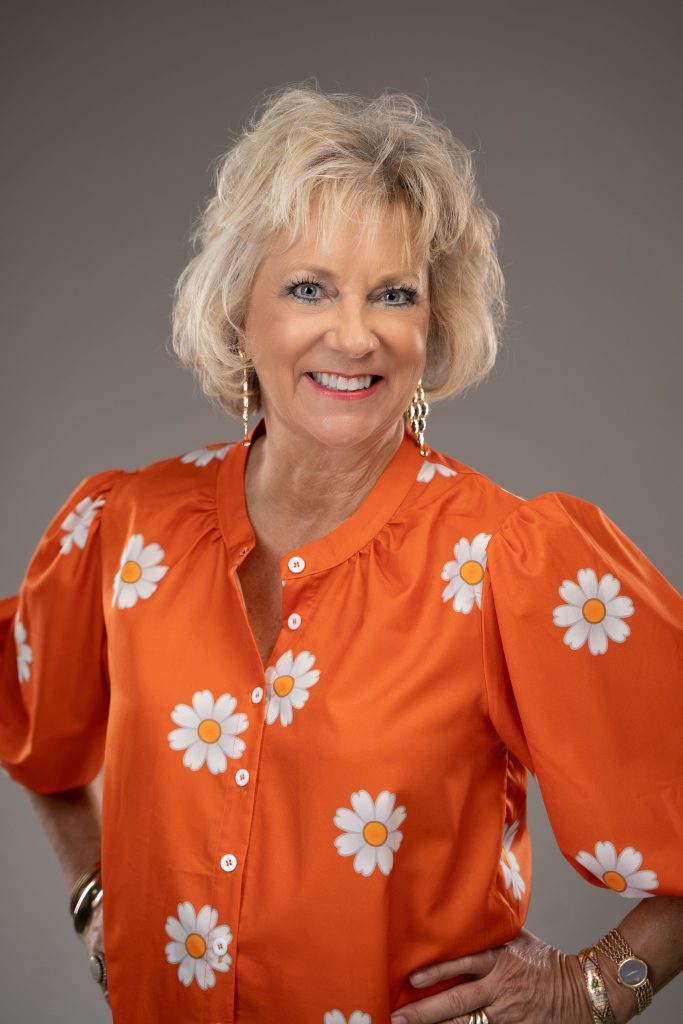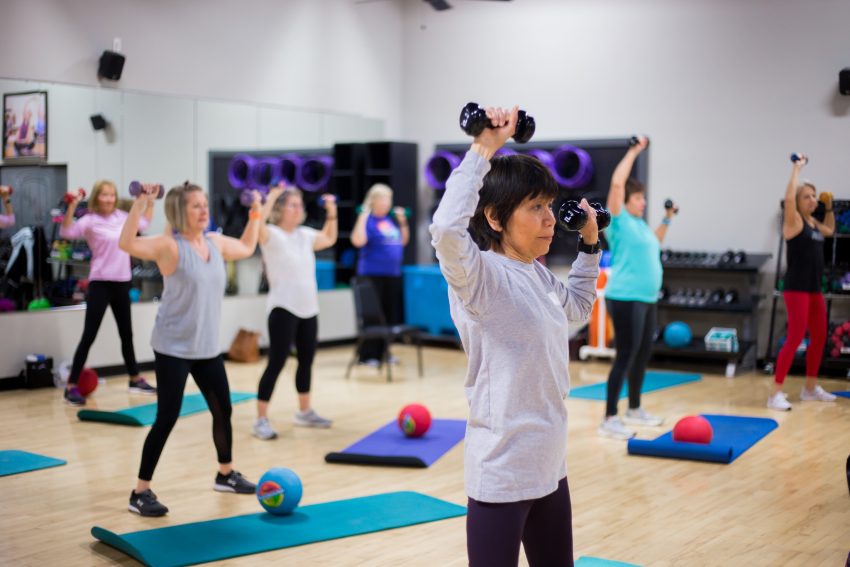We all know that exercise is good for many aspects of our health. We appreciate the benefits including a firm body, strong muscles, and better balance—not to mention an overall sense of wellbeing. As we age, however, exercise has added benefits few realize: recovery.
I work out five days a week. The program in which I am involved is designed specifically for seniors.
Knee Replacement
One of my close friends, Melanie (with whom I work out), had a knee replaced last year. I helped by taking her to physical therapy and to get a manicure (priorities). It seemed that she recovered very quickly. Her doctor told her that since she was in good physical condition, it made the recovery much easier because she didn’t have that far to go. Her muscles were strong, so they supported her knee. Most people must do both recovery and build up strength.
Cancer
A few weeks ago, Tommy, one of the men in our group fitness class, had an announcement. Usually, announcements are about a party or some upcoming social event. Not this time. Tommy told us that a few months ago he’d been diagnosed with prostate cancer. It was why he’d been frequently absent. They gave him treatment options. Despite the long list of potential side effects he could experience as a result of the radiation, it is what he selected. Now, on the other side of treatment, he was happy to share that the only lasting impact was a lack of energy/tiring easily. He wanted us to know that his care team was amazed at how well he had done. They attributed it to his overall strength and good health.
Gratefully, I have not had to deal with any of these maladies. I am on the younger end of the overall class age range. But as we get older, these concerns become more a fact of life. The experiences of Melanie and Tommy stuck with me.
There are numerous studies touting the benefits of exercise for the senior population. Some say it helps with the prevention of Alzheimer’s. Recently the New York Times addressed the importance of Power as a use-it-or-lose-it ability. The NYT article cites Dustin Jones, a Kentucky-based Doctor of Physical Therapy, as saying: “when you lose power, single tasks often feel draining. If you struggle to run up a flight of stairs or are unable to quickly step up onto a curb at a busy intersection, that’s a lack of power.” The article continues: “But with the right exercises, you can prevent this—or restore power you’ve lost. And depending on your fitness level, you can make significant progress in as little as a month or two.” Again, exercise is the difference.
Auto Accident
I shared with my group fitness class that I was interested in writing on this topic. Tammie shared her story—which started with yoga at the Activities Center. “Five years ago, my husband and I were in a horrible car wreck. A truck pulled out in front of us while we were going 70mph. We tried to stop but it wasn’t possible. Long story short, we hit the truck. The impact was so strong, I broke vertebra in my lower back. I was so scared my active life was over! Once out of the hospital I wore a brace for 3 months and could not do anything. When I finally got out of the brace, I started Physical Therapy. After my third session the physical therapist told me I didn’t need to come back! She told me she didn’t know what I had been doing before the wreck but I was in amazing shape. I told her I’d been doing yoga and had started strength classes. She suggested I go back to yoga but just go slow. Then after talking to my neurosurgeon, he said the same and suggested I start back at strength training. So, I did. I am so blessed! Five years later, I have no back pain and feel wonderful.”
Pre-hab
Sherry told me her story. She’d been active, but due to extreme hip pain, she’d deteriorated from walking 3-5 miles a day to being frail and fragile. She reported that her surgeon recommended what he called a pre-hab program to increase her strength and stamina to facilitate a better outcome and quicker recovery from the surgery. Sherry said: “I continued with my pre-hab therapy until my surgery on March 28. By May I was able to discontinue PT and started attending classes at the UMC Activity Center. I have been called a poster child for hip replacement surgery and feel that the pre-hab therapy greatly increased my strength and stamina to facilitate a better outcome for the hip replacement procedure.”
Be Intentional
I was introduced to Jan. Her story is similar to Sherry’s—though she made the realization on her own and doesn’t currently need surgery. She’d always been physically active; her father was a football coach and she married a professional football player. But now, at 76, after a 10-states-in-10-days bus tour, she realized she didn’t have the strength she used to have. With all the stairs, her knees were killing her—which alerted her to the need to get fit. She signed up at the local gym and did tests to determine what areas needed work. She’s now being intentional about it. She goes twice a week. She walks 2 miles and does aerobics.
There are many stories like this. It is not just about vanity. Making exercise a regular part of your routine doesn’t always prevent the typical aging issues, but it does make recovering from them quicker and easier. Mandi Amburn, an Austin, TX based PA with 19 years’ experience in Orthopedics adds: “Not only is physical fitness and strength an evidence-based factor when going into surgery or sickness—with strength playing a role in easier and, more likely, full recovery—it also aids in injury prevention. In an aging population, good functional mobility, proprioception, and balance becomes particularly important as it greatly reduces the risk of falls and injury.”
If we are “frail and fragile,” we can’t live our best life. Get engaged in staying fit. You can do it on your own. You can watch YouTube videos, do a Peloton program, or something similar. But most of us find that the friendship and accountability we get from a group fitness class keeps us doing it. If you are not currently involved in a class, Silver Sneakers may be a good place to start. Many Medicare programs offer no-cost classes for adults who are 65+. Personally, I attend the Strictly Strength and Aerobics classes through the UMC Activities Center that is near my home.
What do you do to get fit? Do you have a story to share that might be an encouragement to others? I’d love to hear from you!

Marita Littauer Tedder has spent the majority of her adult life working with women—helping them improve relationships, achieve their speaking and writing dreams, and being the best version of themselves they can possibly be. The author of 20 books, this Living Our Best Life Project is her newest effort—through which she hopes to challenge women to be fulfilled where they are.


Continuing to move is very important. I had a knee replacement 5 months ago. It has not been easy for me at all. Even with being in shape and strong, the recovery has been long and hard and will continue to be as I try to regain my strength. I can’t imagine what it would have been like if I had been weak going into this.
I am sorry to hear your recovery has been long and hard. I had another friend who had double knee replacement in early October. She’s had to struggle more–though after about the first two months she said she was feeling better every day. I hope you are finally feeling that way too.
All of the examples you’ve shared are smart encouragement. I’m happy to get to share some of those classes with you!
My husband and I feel the difference every day when we make the effort to move and stretch and work out. For me, it completely fuels my mind too! Thanks for the individual stories. I admire people who don’t give up in the midst of a health challenge.
I attend strictly strength and aerobics. A workout for five days a week! Avery and Robin are excellent coaches for these classes. I’ve made so many friends and love how my endorphins spike after each work out. I’ve never been healthier in my life! I intend to continue in these classes as long as the Lord permits. Thank you UMC!!!!!!
Great article Marita! I love our Strictly Strength class and the people in it! It’s just what I was looking for in exercise and friendships.
Nicely done Marita. I believe exercise and community are the most important things to pursue to keep yourself vital…both of which are available at the UMC Activities Center!
I totally agree. Exercising makes me feel better. I started strength training to help increase my bone density. When I started I had osteoporosis but my last scan in July showed that my bone density had improved. Now I have osteopenia! So exciting to see how strength training can help us to stay active and healthy.
Wow! Thanks for sharing that good story!